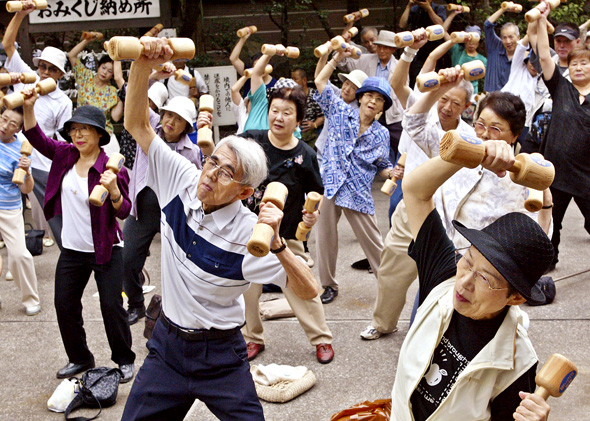Not long ago seen as the “twilight years”, 65 to 75 is the new “semi-elderly”, according to ageing experts in Japan.
A study carried out by the Japan Gerontological Society and the Japan Geriatrics Society has confirmed previous research in Japan showing that people are living longer than before - but adds that because they are both increasingly physically and mentally fit for longer, then the term “elderly” should no longer apply before a person reaches 75.
Announcing the report, Yasuyoshi Ouchi went as far as to say that the use of the term for anyone under the age of 75 is “anachronistic.”

“We would like the proposal to change public awareness of elderly people and provide an opportunity to promote their participation in society,” Ouchi, who headed the research team and is president of Toranomon Hospital in Tokyo, told a press conference to release the report.
Hiroshi Yoshida, a professor who specialises in the economics of ageing at Japan’s Tohoku University, says there is widespread support for the idea that the definition of elderly needs to be rethought.
“People who are 65 today have more vitality and energy than people of the same age in previous years,” Yoshida said.
“As part of this research, different age groups were asked what age group they considered ‘elderly’ and very few replied that 65 was elderly.
“That was true among young people, middle-aged respondents - but noticeably among people who were in their 60s and 70s,” he said.
“They did not want to be labelled as ‘elderly’.”

Yoshida - who is 52 and agreed that he is a spring chicken - said there is a growing belief that the definition of elderly should be reserved for the last decade of a person’s average life expectancy, which for a Japanese woman is 85 and a man 80 years old.
“There are some scholars now who are saying that now we should multiply our age by 0.8 to give us our ‘real’ age, which means someone who is 40 has a ‘real age’ of just 32.”
At the other end of the spectrum, the societies’ research suggests that people aged 90 and above should be referred to as the “super-elderly.”
The research confirms that Japanese people are living longer - a phenomenon that experts link to a diet that is high in vegetables, fruit and fish - and excellent healthcare, enhanced in recent years by advanced medical technologies and treatments. As a result, Japanese are among the longest-living people on the planet.
Source : South China Morning Post


















